News
-
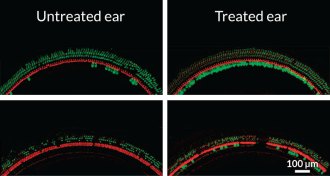 Genetics
GeneticsGene therapy restores hearing in mice
Scientists have used gene therapy to restore hearing in deaf mice.
-
 Climate
ClimateGreenland’s out-of-sync climate explained
Small variations in the sun’s activity cause big changes in Greenland’s temperatures decades later by altering ocean currents, new research suggests.
-
 Life
LifeAge isn’t just a number
Getting old happens faster for some, and the reason may be in the blood.
-
 Physics
PhysicsMagnetic test boosts case for record-setting superconductor
New measurements bolster the case that hydrogen sulfide is superconducting at about 200 kelvins, roughly 40 kelvins higher than any other known material.
By Andrew Grant -
 Neuroscience
NeuroscienceWrinkled brain mimics crumpled paper
Brains crumple up just like wads of paper, a new study suggests.
-
 Chemistry
ChemistryMissing enzyme to blame for scentless roses
The unusual enzyme behind roses’ sweet smell may help researchers revive the flower’s potent aroma.
By Beth Mole -
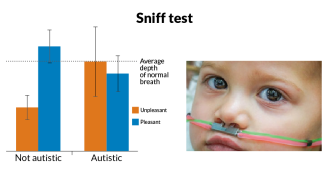 Health & Medicine
Health & MedicineSmell test may detect autism
A quick sniff test could reveal whether or not a child has autism, but some scientists have doubts.
By Meghan Rosen -
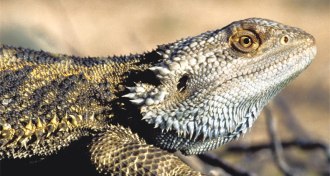 Animals
AnimalsHeat turns wild genetic male reptiles into functional females
Genetic male bearded dragons changed to females by overheating in the wild can still breed successfully.
By Susan Milius -
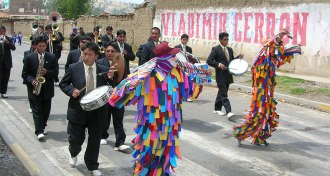 Psychology
PsychologyMusic to just about everyone’s ears
Common elements of music worldwide point to its central role in group cohesion.
By Bruce Bower -
 Astronomy
AstronomySuper-Earths are not a good place for plate tectonics
The intense pressures inside super-Earths make plate tectonics less likely, new research suggests.
-
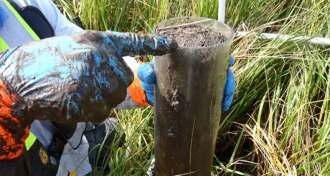 Environment
EnvironmentOil-munching microbes cleaning up Gulf marshes faster than expected
Microbes in some of Louisiana’s marshes are breaking down oil from the Deepwater Horizon spill faster than expected.
By Beth Mole -
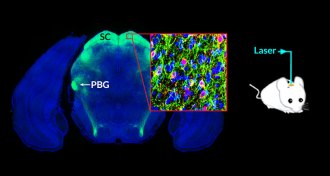 Neuroscience
NeuroscienceOne path that fear takes in the brain discovered
By hijacking a newly discovered pathway in mice’s brains, scientists inspire fear.